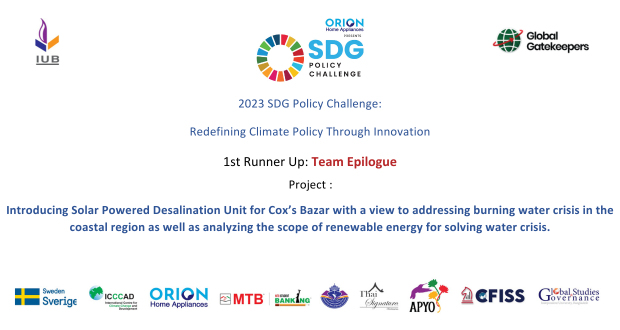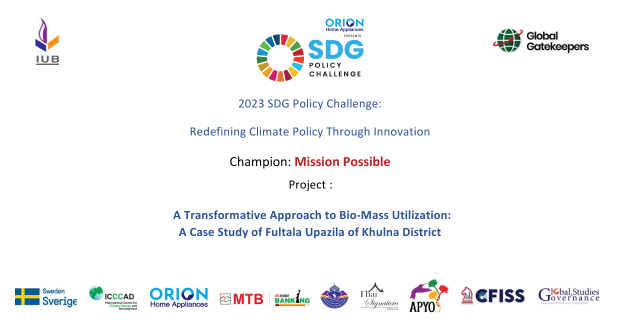CFISS Publications

Introducing Solar Powered Desalination Unit for Cox’s Bazar with a view to addressing burning water crisis in the coastal region as well as analyzing the scope of renewable energy for solving water crisis.
Bangladesh, a deltaic country with low lying areas that is tucked between India and Myanmar, is struggling with an increasingly severe water crisis that is being made worse by saline intrusion and the extensive effects of climate change. Bangladesh's landscape is defined by a complex web of rivers and estuaries that provide both sustenance and vulnerability, making the nation especially vulnerable to the negative effects of rising sea levels and shifting climatic patterns. Salinity intrusion is one of the main causes of Bangladesh's water crisis. This incursion is mostly seen along the coast, where the delicate equilibrium between freshwater and saltwater is increasing. Sea levels rise as a result of polar ice caps melting due to an increase in global temperatures. As a result of the increased sea levels, saltwater is more likely to seep into groundwater and river deltas, contaminating vital freshwater resources.

A Transformative Approach to Biomass Utilization: A Case Study of Phultala Upazila of Khulna District
The International Energy Agency's 2022 report estimates that 2.3 billion people globally cook with biomass on a daily basis (IEA, 2023). As per the report of the Bangladesh Bureau of Statistics (BBS), approximately 92% of rural households in Bangladesh (Rahman, 2023) specifically in the Khulna district (97%) utilize a diverse range of biomass fuels for cooking every day (Biswas et al., 2023). The policy brief addresses the significance of sustainably utilizing biomass in cooking stoves by replacing Traditional Cooking Stoves (TCS) with Smart ICS (Improved Cooking Stoves). Our target beneficiaries are individuals who rely on biomass for everyday cooking and aim to promote sustainable utilization of biomass within their existing cooking routines in Phultala Upazila, Khulna. Indoor air pollution and health hazards arising from using TCS which runs on biomass cause an estimated welfare loss of $1.5 trillion each year (World Bank, 2019). According to the Sustainable and Renewable Energy Development Authority (SREDA), ICS reduces firewood consumption by up to 50 percent (Roy & Hasan, 2022). To improve energy efficiency, reduce firewood consumption, and cut down on greenhouse gas emissions about 45 lakh ICS have been installed in households across the country (ibid). As such, Smart ICS will play a conducive role in further reducing toxic gas emissions and help to protect the environment as well.